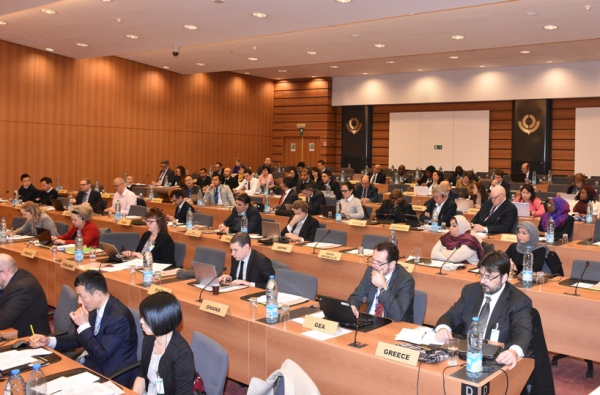The SAFE Working Group (SWG) has finalized this year’s draft edition of the World Customs Organization’s (WCO) SAFE Framework of Standards (SAFE), which is to be presented for adoption and publication this year.
The SWG worked over the last two years to update SAFE and develop and improve associated tools, and met last month to draw up the final draft of the 2018 edition.
The 19th meeting of the SWG, held February 21 to 23 at the WCO headquarters in Brussels, brought together over 100 delegates from customs administrations, partner government agencies, the private sector consultative group, international organizations, and academia.
“The key outcome of this concluding meeting of the 2018 review cycle is the finalization of the 2018 SAFE Framework of Standards,” said WCO in a release.
Ana B. Hinojosa, WCO director of compliance and facilitation, stressed that given global security concerns and the fresh impetus on trade facilitation, SAFE and its associated tools are important in enhancing supply chain security and facilitation through enhanced partnerships based on trust, transparency, and technology.
The updated SAFE and the newly developed and updated tools will be presented to the June 2018 Policy Commission and the Council for their potential consideration and adoption, before their publication.
Some of the notable features of the updated SAFE include requiring advance electronic data on postal items; adding text on data quality; providing for certain minimum tangible benefits to Authorized Economic Operators (AEOs); harmonizing data filing requirements and the single window concept; strengthening cooperation with other government agencies entrusted with regulatory authorities over weapons and hazardous materials and passenger control; and revising the definition of “validation.”
Other highlights of this cycle were the development of AEO and Mutual Recognition Arrangement (MRA) Packages that included a number of new and updated tools (e.g. comprehensive list of AEO benefits; AEO Validator Guidance; Updated AEO Template, MRA Strategy Guide, MRA Implementation Guidance, MRA Templates, FAQ on MRA, and Advance Cargo Information Implementation Guidance).
These packages and tools seek to provide guidance and further support to members and partner stakeholders in effective and harmonized implementation of AEO programs and MRAs.
The SWG also developed a Trader Identification Number (TIN) Package including a Recommendation and Guidelines that would further facilitate an efficient implementation of MRAs, greatly benefiting traders and customs administrations.
Furthermore, the SWG discussed and endorsed the AEO Validator’s Training Modules, the Guidance on the use of data analytics, a FAQ on the linkages between the SAFE AEO program and the WTO Trade Facilitation Agreement Article 7.7, and the updated Integrated Supply Chain Management Guidelines.
The WCO adopted the “SAFE Framework of Standards to secure and facilitate international trade,” commonly referred to as “SAFE,” in 2005. SAFE’s stated purpose is to set forth principles and standards that WCO member customs administrations are encouraged to use in developing their cargo and supply chain security policies and programs.
Photo courtesy of WCO









